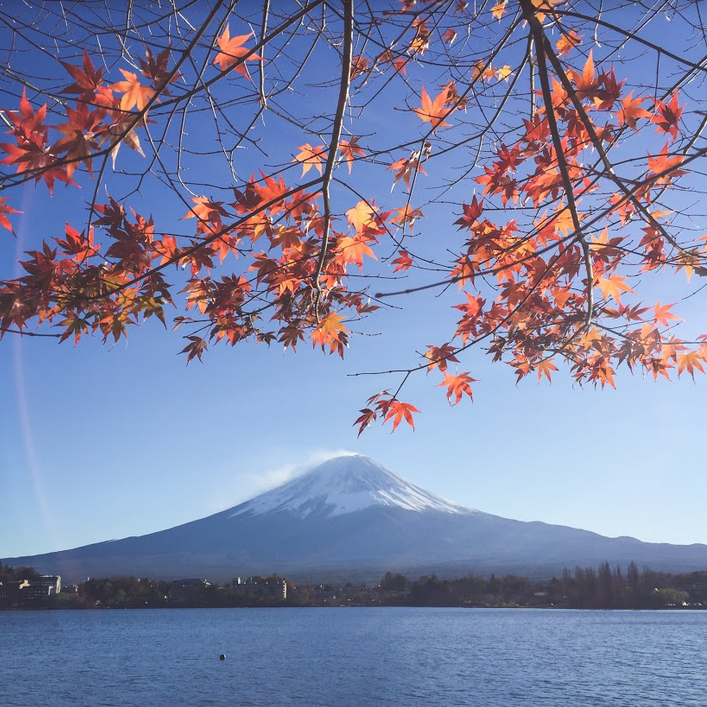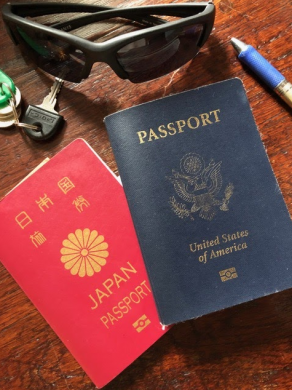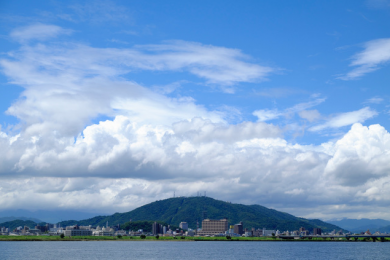
Home, sweet home, but where is home?
When summer comes near, it is time to think about a holiday: A holiday to go home with children. Summer is the longest school break for international schools and that makes it worthwhile to spend time, money and energy on a long overseas trip home. I assume this is relatable to many Thailand expats with children. Summer is the time to head for “home, sweet home.” But then, when I think of my children, I wonder where their home is, where they think their home is and what their concept of home is like. I am a Japanese lady married to an American man. We have two teenagers who were born and grew up here in Thailand. They are so called “third-culture kids.” Those who have spent a significant amount of time in their formative years in a country other than their parents’ nationalities. Where is their home? Japan, USA, or Thailand?

When I think of “home” myself, a series of sceneries in my home town come up to my mind. They are the images in Tokushima, Japan that I have no doubt to call home. For example, there is a small mountain called Bizan, which literally means eyebrow mountain because it looks like a shape of
The mountain was smoky pink covered with cherry-blossoms in the spring, bright dark green in the summer with cicadas’ crying at the top of their voices, yellow and red when the leaves changed in colours in the autumn, and white with snow-covered branches in the winter. When I was a little girl, I played in a small brook at the foot of the mountain with the neighbourhood kids. Sometimes my father took me for a walk in the woods. It was a part of my growing up. When John Denver sings “country road, take me home, to the place I belong,” I think of Bizan as my Mountain Mama. I have spent a latter half of my life overseas and sometimes I become sentimental since I am so far away from home for such a long time. But at the same time, I feel fortunate to have a place called home in my heart. It is comforting and assuring to know there is a place I
But what about my children? Where is their home? Japan or USA? Do they call them home? They have never lived there. Nationality does not mean it is “home” in their heart, does it? Thailand? I am not sure if they have a sense of belonging to Thailand. We are officially “alien” here and they grew up in a very exclusive international community. Our apartment on Sukhumvit hosted mostly expats working in Thailand. I remember being amused by looking at my daughter’s friends at the playground and realising there were eight nationalities represented among four children including mine. How international these toddlers are! They went to international schools where more than half of the students come from countries other than Thailand.
There is not much of a Thai element in this community. Furthermore, this community consists of people of mobility. They come and go. Thailand is a temporary residence for most expats and I think we watched a big moving truck come to our apartment every month. Many of their friends would stay here for only a few years. My children have lived in a perpetually mobile community. Do they find any sanctuary in their ever-changing environment? Do they ever have a sense of “home” at all?

We have taken our children to Japan and USA every summer since they were born. This was a big commitment. Financially, paying airfare for a family of four to Japan and the US every year was not that easy. I remember sighing for the amount we had to pay but my husband said bluntly it was already budgeted. Mind you, we did not have an expat package with home leave and we paid for the trips ourselves. Who budgeted it? I guess he meant it was a necessary expense and there was no point in complaining. Time-wise, kids had a two-month holiday but we did not. I worked on a project basis so my time was relatively flexible, but my husband has a 9-5 job and two weeks, or to stretch it to two and half weeks, is the max he can take leave. We tried to juggle time and money: When stopping over in Japan on the way to the US was the most economical route, I took the kids to Japan for a few weeks first and
Why have we done this every year? This is a commitment no one has forced us to do. It was totally up to us, but my husband and I never really discussed this question. For him, summer was equal to going home time. Period. As simple as that. In fact, he seems to refuse to ask any life-related question. On the other hand, I ask too many questions. Or rather the same question over and over. Why do we do this every year?
I had many hopes packed into this annual summer trip. I wanted my children to have a sense of belonging to my home. I wanted my parents and children to enjoy their time together. I wanted them to have a family bonding even though or rather because they don’t see each other often. The Japanese language is also very important. My children went to international schools and didn’t have much chance to use the language. I wanted them to be in an environment where the language was “alive”, rather than learnt in a classroom. I wanted them to know their roots and to feel it real. Above all, I wanted them to have a place called home in their heart. In “Gone with the Wind” when Scarlet was in despair, isn’t it Tara, the red earth of Tara, that gives her the strength to start a new day? Home indicates a place in which you are cocooned with affection and security. It is a solid foundation that supports us through hardships. I wanted my Bizan to be the source of strength for them.

Yet it didn’t take long to realise that my Bizan did not mean the same thing to them. I had watched
That is a notion that I was gradually developing in mind, but hesitant to verbalise as such. Because my becoming a home for them sounded like a wild ambition, a dream of grandiose. I was not ready to declare it with full confidence. I definitely wanted to give them a secure loving place of comfort but “home” should be a whole surrounding package which envelops a family. Solid, unshaken and eternal mother nature such as John’s Mountain Mama, Scarlet’s red earth of Tara, and my Bizan are symbols of a whole package. Can we become their home without the power of mother nature? That is a much bigger challenge than a commitment to travel home, Japan and the USA, every summer. This summer, my daughter is not coming home, I mean, not to our house in Thailand. She is off to college in the US, making herself busy with an internship and study-abroad programme. Instead, I am going to see her. Whether I am bringing “home” to her is yet unknown.



